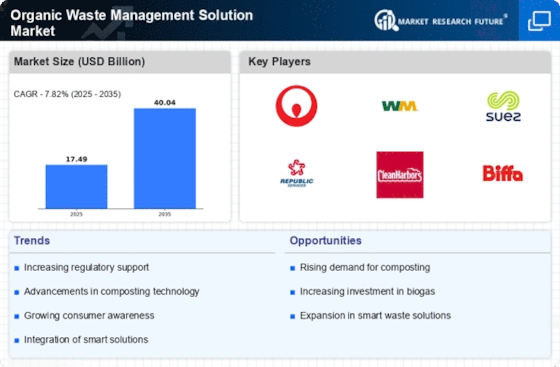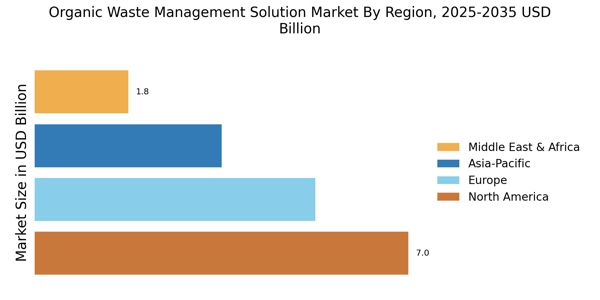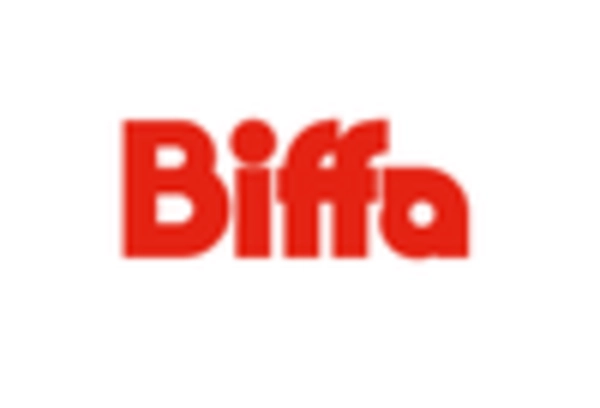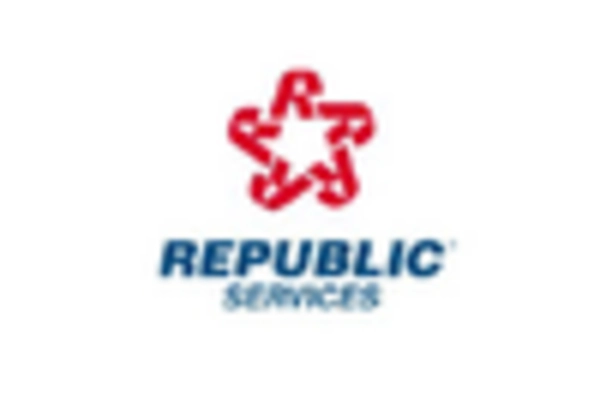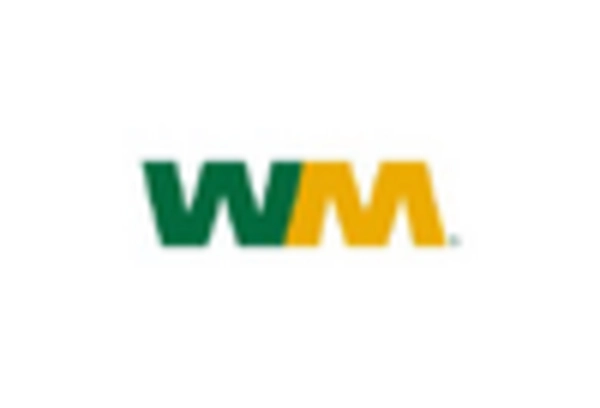Increasing Urbanization
The trend of increasing urbanization appears to be a significant driver for the Organic Waste Management Solution Market. As urban populations expand, the volume of organic waste generated rises correspondingly. In urban areas, organic waste constitutes a substantial portion of total waste, often exceeding 50%. This necessitates efficient waste management solutions to mitigate environmental impacts. Municipalities are increasingly investing in organic waste management technologies to address these challenges. The market for organic waste management solutions is projected to grow at a compound annual growth rate of approximately 7% over the next five years, driven by the need for sustainable waste disposal methods in densely populated regions.
Technological Innovations
Technological innovations are transforming the Organic Waste Management Solution Market, offering new methods for processing organic waste. Advanced technologies such as anaerobic digestion, composting, and bioenergy conversion are gaining traction. These technologies not only enhance waste processing efficiency but also contribute to energy generation and nutrient recovery. The integration of smart technologies, such as IoT and AI, is further optimizing waste management operations. The market for these innovative solutions is anticipated to expand, with investments in research and development expected to increase. As municipalities and businesses seek to improve their waste management practices, the demand for technologically advanced organic waste solutions is likely to rise.
Rising Environmental Concerns
Rising environmental concerns are driving the Organic Waste Management Solution Market as stakeholders become increasingly aware of the ecological impacts of waste disposal. The accumulation of organic waste in landfills contributes to greenhouse gas emissions, which has prompted calls for more sustainable waste management practices. Public awareness campaigns and educational initiatives are fostering a culture of sustainability, encouraging individuals and organizations to adopt composting and recycling practices. This shift in consumer behavior is likely to propel the demand for organic waste management solutions, as more entities seek to minimize their environmental footprint. The market is expected to respond positively to these changing attitudes, with growth projected in the coming years.
Economic Incentives and Funding
Economic incentives and funding mechanisms are emerging as vital drivers for the Organic Waste Management Solution Market. Governments and financial institutions are increasingly providing grants, subsidies, and tax incentives to promote the adoption of organic waste management technologies. These financial supports lower the barriers to entry for businesses and municipalities, facilitating the implementation of sustainable waste management practices. As a result, the market is likely to witness an influx of investments aimed at developing and deploying organic waste management solutions. The potential for cost savings through reduced landfill fees and increased resource recovery further enhances the attractiveness of these solutions, suggesting a robust growth trajectory for the market.
Government Initiatives and Policies
Government initiatives and policies play a crucial role in shaping the Organic Waste Management Solution Market. Many governments are implementing stringent regulations aimed at reducing landfill waste and promoting recycling and composting. For instance, several countries have set ambitious targets for organic waste diversion from landfills, which has led to increased funding for organic waste management projects. The market is expected to benefit from these initiatives, as they create a favorable environment for the adoption of innovative waste management technologies. Furthermore, public-private partnerships are emerging as a viable strategy to enhance the efficiency of organic waste management systems, potentially increasing market growth.


